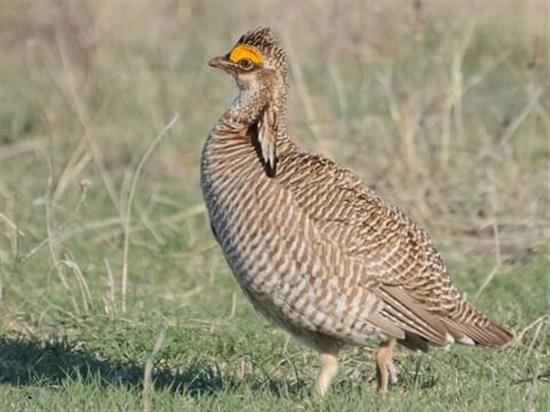
Pfluger Fly-By
Subscribe to my newsletter to get the latest news and updates from my office.
Press Releases
Pfluger slams Biden Administration’s latest scheme to harm energy and agriculture industries by listing the Lesser Prairie-Chicken under the Endangered Species Act
Washington,
November 17, 2022
|
Lyssa Bell
(202-225-3605)
WASHINGTON, D.C. – Rep. August Pfluger and the Permian Basin Petroleum Association today released statements following the U.S. Fish & Wildlife Service’s decision to list the Lesser Prairie-Chicken under the Endangered Species Act (ESA), a move that will have a disastrous impact on American energy and agriculture production. “The Biden Administration has chosen to continue their assault on Texas energy and agriculture producers by classifying the lesser prairie-chicken as an endangered species. This decision will wreak havoc on our local and state economies and make it even harder to produce oil & gas in the midst of an energy and economic crisis,” said Congressman August Pfluger. “President Biden needs to get out of the business of over-regulating and focus on unleashing American energy dominance. The federal government must do so in a balanced manner through ongoing local and state conservation efforts. We can protect important species without devastating our local and rural communities. I look forward to passing legislation to modernize the ESA and hold the Biden Administration in check in the new House Republican Majority.” Permian Basin Petroleum Association (PBPA) President Ben Shepperd said: “Today’s U.S. Fish and Wildlife Service’s decision to list the Lesser Prairie Chicken is careless and irresponsible. This action discards years of valuable progress with voluntary programs that have proven to be successful in conserving the species. Many PBPA member companies have a demonstrated record of development and ongoing support of successful habitat management and conservation programs, typically in partnership with the Service and state fish and game agencies “Oil and gas companies have invested significant resources and participated in conservation agreements in which tens of thousands of acres of habitat have been enrolled and tens of millions of dollars have been spent to protect the species, stabilizing and increasing the LPC populations throughout the range yielding measurable successes that also have shown minimal habitat disruption. Since the state and stakeholder conservation efforts began in 2014, LPC populations have continued to increase. Undermining these existing state-led conservation efforts will invariably lead to unintended consequences and prove to have unnecessary adverse impacts to the LPC and the landscape that is its habitat.”
Background Congressman August Pfluger (TX-11) introduced H.R. 4370, the Listing Reform Act, to modernize the Endangered Species Act (ESA) and prevent the ESA from being used as a weapon against critical agriculture and energy industries. This legislation reforms the ESA to deliver reasonable, common-sense protections for endangered species while preventing overbearing regulations coming from Washington, DC. Notably, the bill also requires the federal government to analyze the costs of ESA listings in our communities and critical industries. The bill is supported by the Texas Farm Bureau, the Texas & Southwestern Cattle Raisers Association (TSCRA), the Permian Basin Petroleum Association (PBPA), the National Endangered Species Act Reform Coalition (NESARC), and Texas Cattle Feeders Association (TCFA). |

